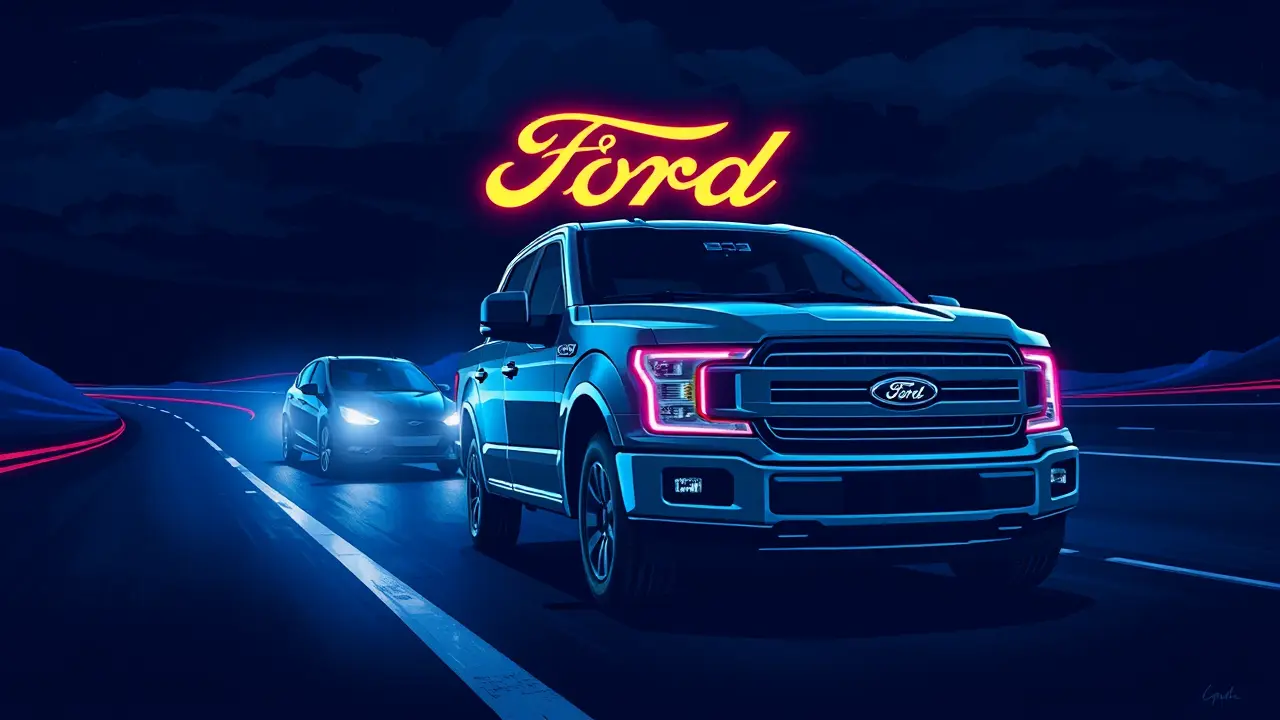
Otherauto & mobilityElectric Vehicles
Ford's Evolving Ad Campaigns Reflect Changing American Identity
LA
Laura Bennett
10 hours ago7 min read5 comments
Every product sells itself with a story, and the story Ford tells us is that its cars are America—a narrative as deeply woven into the national fabric as the assembly lines Henry Ford pioneered in 1913. I’ve always been fascinated by how brands mirror our collective psyche, and Ford’s ad campaigns are a perfect case study.They don’t just sell vehicles; they sell an evolving idea of American identity, reflecting who we think we are at any given moment. Take that iconic 1924 ad, 'Opening the highways to all mankind.' It wasn’t just about the Model T; it was a populist vision of a democratic America, where the nuclear family—straight, white, and middle-class—could access travel once reserved for the elite. That ad painted a future of boundless optimism, with Ford as the engine of progress, but it also subtly defined America by what it excluded: the intergenerational families of Europe, the communal travel of trains, anyone outside that narrow ideal.Fast forward to the Obama era, and Ford’s tone shifted to cosmopolitan inclusivity. Ads like the 2015 spot asking 'What’s next?' celebrated a diverse, forward-looking America, where feminism was chic enough to sell cars and a woman’s 'inner Mustang' was a universal truth.I remember watching those campaigns and feeling that sense of possibility—the belief that America was on an unstoppable upswing. But today, Ford’s messaging has turned defensive, even resentful.In a recent ad commemorating the Detroit Lions, the voiceover declares, 'We aren’t handed anything,' tapping into that deep story of grievance sociologist Arlie Russell Hochschild identified. It’s a narrative of struggle and suspicion, where manual labor is valorized over 'feminized email jobs,' and rural authenticity is contrasted with urban decay.This isn’t just marketing; it’s a barometer of national anxiety. I’ve spoken to people who feel this shift in their bones—the move from collective optimism to individual scrappiness.One Detroit auto worker told me how Ford’s current ads resonate with his sense that the American dream has been snatched away, forcing him to 'reach and grab and fight. ' That emotional undercurrent explains why Ford’s campaigns now emphasize culture war signifiers, like the Truckle belt buckle for F-150 keys, which romanticizes a rugged, self-reliant past.It’s a far cry from the rose-tinted vistas of 1924, and it reveals a country grappling with its identity in real time. Ford’s evolution from builder to defender shows us that the stories we tell about ourselves are never static; they’re shaped by economic pressures, political divides, and the unspoken fears that define an era.As one historian I interviewed put it, 'When Ford sells a truck, it’s selling a version of America that we’re either proud of or desperate to reclaim. ' And right now, that version is closed-in, furious, and no longer willing to buy optimism—a reflection of a nation unsure of what comes next.
#Ford
#advertising
#marketing
#culture
#American identity
#automotive industry
#editorial picks news
Stay Informed. Act Smarter.
Get weekly highlights, major headlines, and expert insights — then put your knowledge to work in our live prediction markets.
Related News
© 2025 Outpoll Service LTD. All rights reserved.












